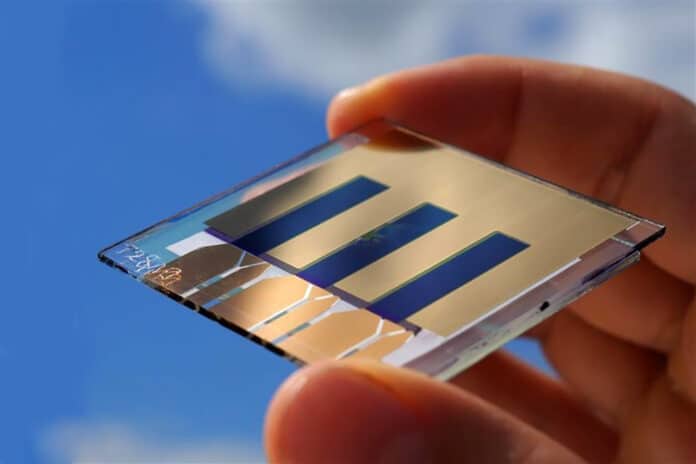Organic photovoltaics (OPV) is a promising technology that offers numerous benefits for solar energy applications thanks to its climate-friendly and inexpensive production. Additionally, the flexibility and potential transparency of its solar cells make OPV a versatile option in a variety of settings. To help this technology achieve a market breakthrough, researchers around the world are working to improve the efficiency and scalability of organic solar cells.
Researchers at the Fraunhofer Institute for Solar Energy Systems ISE and the Materials Research Center FMF at the University of Freiburg have set a new world record for an organic solar cell with an area of one square centimeter.
They achieved a new record efficiency of 15.8% for this solar cell by applying an anti-reflection coating. The coating allows more light to be absorbed in the photoactive layer of the cell, thus generating a higher current.
Researchers use this coating technology not only for reducing reflection but also for developing electrodes for semi-transparent organic solar cells. These solar cells consist of a photoactive organic layer applied to a back electrode that allows the visible light to pass through as much as possible while strongly reflecting the near-infrared light back into the solar cell, where it is absorbed and converted into electricity.
Organic solar cells have many advantages. They can be produced without heavy metals or other critical elements, making them environmentally friendly and cost-effective. These solar cells are also lightweight, mechanically flexible, and easy to integrate, making them a versatile option for a variety of settings.
By selecting organic semiconductors that absorb only infrared light, transparent solar cells can be developed for applications such as windows and transparent protective covers for crops.
